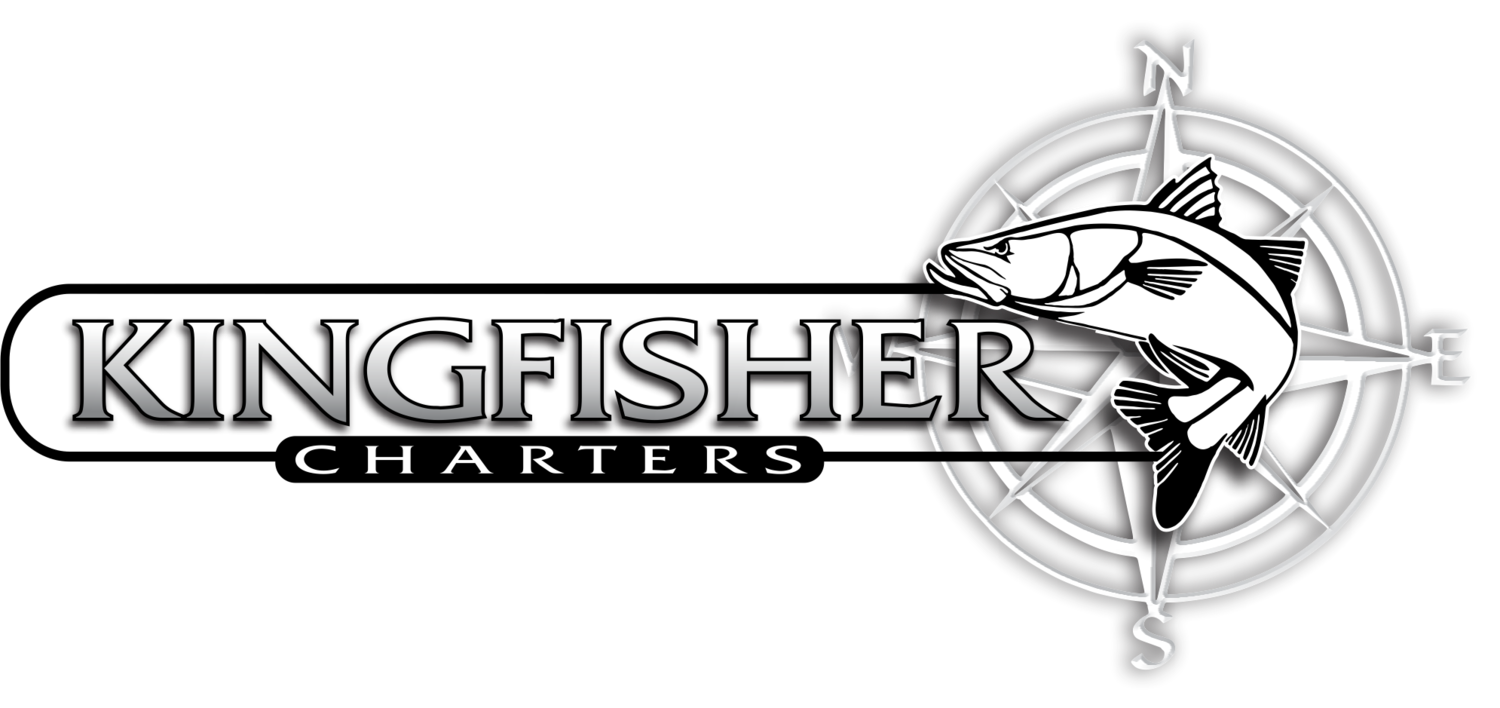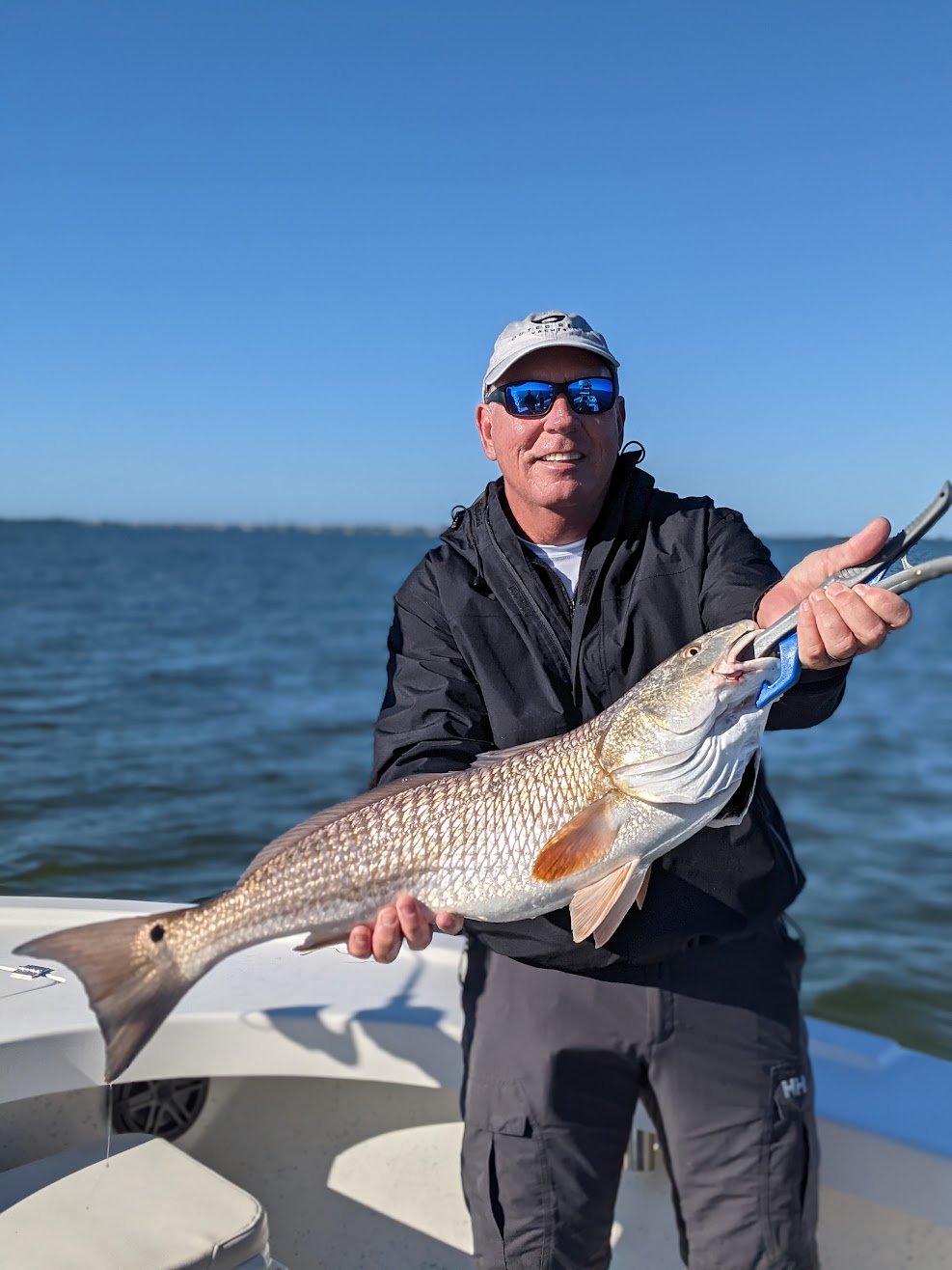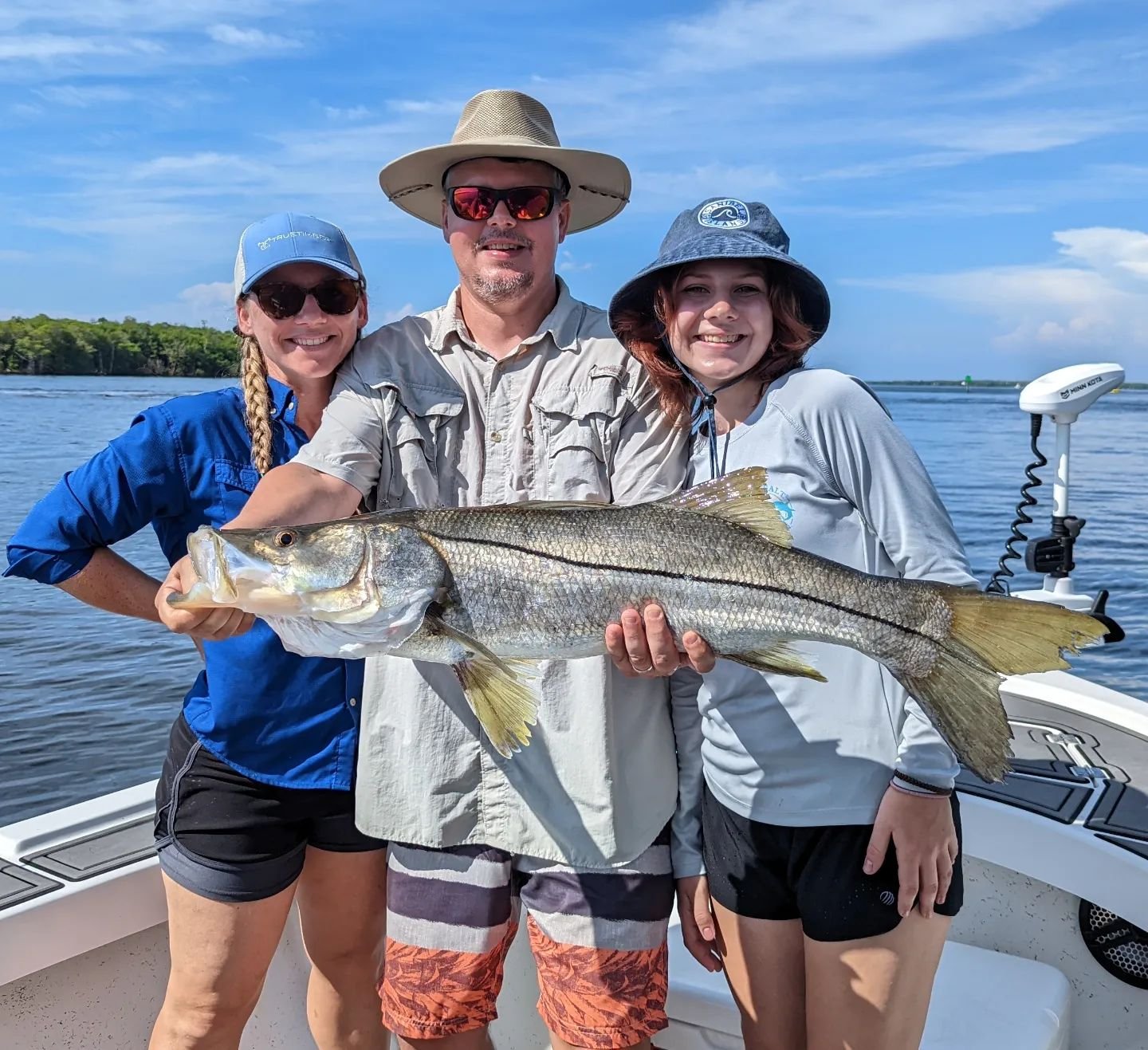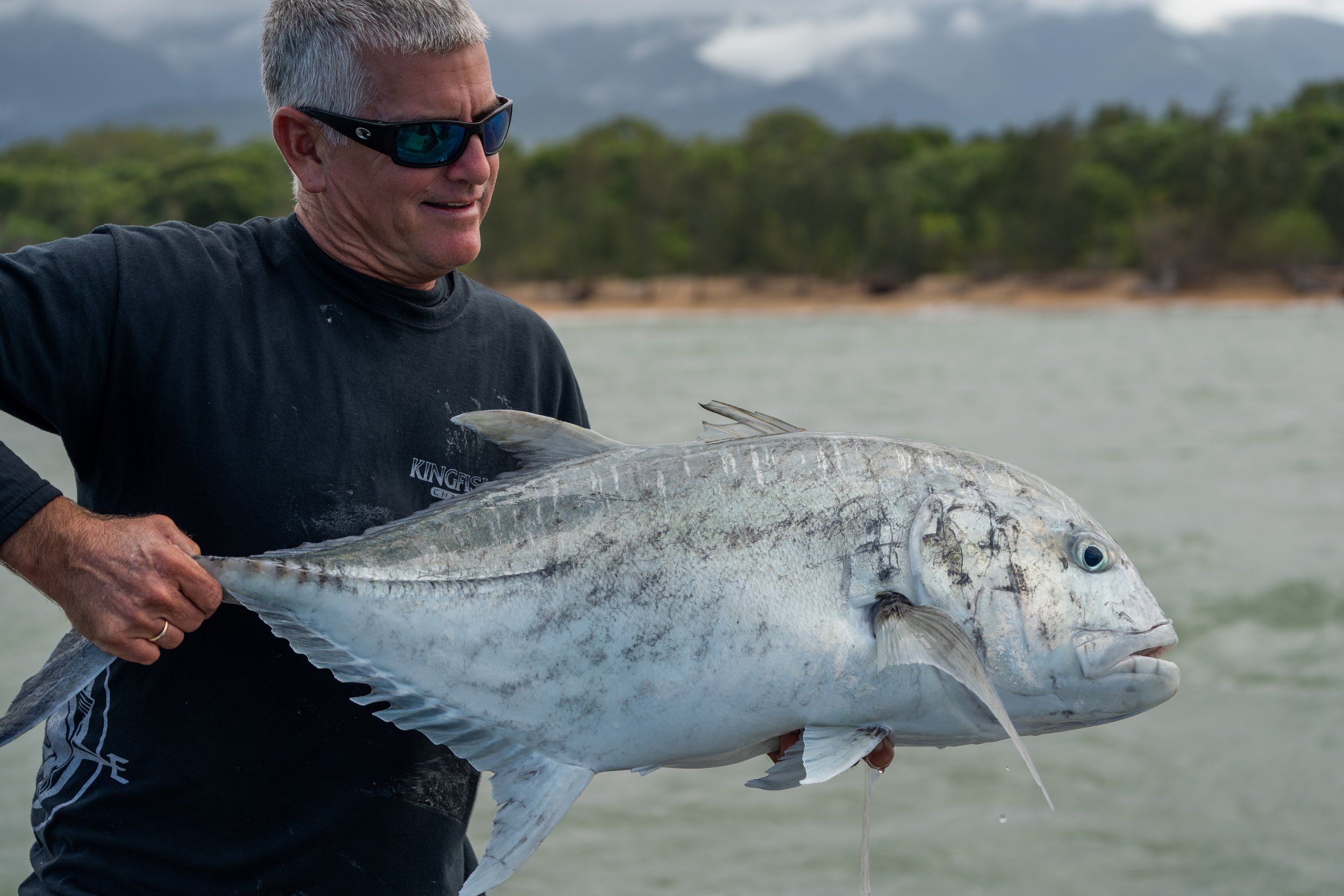Fishing in Fort Myers offers a unique blend of serene landscapes and thrilling catches. With its rich waters and diverse fish population, Fort Myers is a top destination for anglers. However, the complexity of its waters can make it challenging without the right knowledge and experience. Hiring a fishing guide can make all the difference.
Local Expertise and Knowledge
Fishing in Fort Myers isn't just about throwing a line into the water and hoping for the best. The area comprises a complex network of mangroves, estuaries, flats, and nearshore reefs. Each of these environments supports different species of fish, which vary in behavior and abundance throughout the year. A local fishing guide has spent years, if not decades, learning these waters. They understand the subtleties of the local ecosystems, such as where the redfish congregate during the winter months or how the tides affect the feeding patterns of snook.
Guides also stay updated with the latest fishing reports and trends, ensuring they know where the fish are biting on any given day. This real-time knowledge is something that can't be gleaned from a guidebook or a fishing app. They understand that during different seasons, fish behavior changes. For instance, in the summer, tarpon are more likely to be found in deeper waters to avoid the heat, while in the winter, you might find them in shallow waters where the temperature is warmer.
In addition to seasonal patterns, fishing guides are attuned to daily changes. They know how a sudden rain shower can stir up the water and affect fish visibility, or how a change in wind direction might push baitfish closer to shore, attracting larger predators. This day-to-day expertise is invaluable for making quick decisions that can enhance your fishing success.
Safety and Conservation
Fishing in unfamiliar waters can pose various safety risks, especially if you are not accustomed to the local conditions. A fishing guide prioritizes your safety, ensuring you follow all necessary precautions. They provide safety equipment, such as life vests and first aid kits, and instruct you on how to use them properly. Moreover, guides are well-versed in the local regulations and conservation efforts. They practice and promote sustainable fishing techniques, such as catch and release, to help preserve fish populations for future generations. This is particularly important in areas like Fort Myers, where the ecosystem is delicate and can be easily disrupted by overfishing or improper practices.
Safety isn't just about avoiding accidents. It also involves understanding the potential dangers posed by wildlife and weather. Fort Myers waters can be home to alligators and other potentially dangerous animals. A guide knows how to navigate these areas safely and what precautions to take. Similarly, Florida's weather can change rapidly, and a guide's experience with sudden storms or high winds can be crucial for ensuring a safe trip.
Conservation efforts go beyond following regulations. Fishing guides often participate in local conservation programs, such as tagging fish to track their movements or participating in clean-up efforts to protect the waterways. By hiring a guide, you are also supporting these important conservation initiatives, helping to ensure that the fish populations and natural beauty of Fort Myers are preserved for future generations.
Maximizing Your Time
One of the significant advantages of hiring a fishing guide is the ability to maximize your time on the water. Without local knowledge, you might spend hours searching for the best fishing spots, only to come up empty-handed. A guide takes you directly to where the fish are biting, based on their extensive experience and daily observations. Instead of wasting time trying to figure out which bait works best for which fish, your guide will have already prepared the right bait and tackle. This allows you to focus on enjoying the fishing experience rather than worrying about the logistics.
In addition to knowing where to fish, guides also understand the best times to fish. They can tell you when specific species are most active and where you should be during these peak times. For example, early morning might be the best time to catch redfish, while late afternoon might be better for snook. Understanding these patterns can significantly increase your chances of success.
Efficient time management extends beyond just fishing. A guide handles all the preparatory work, such as acquiring fishing licenses, preparing the boat, and ensuring all equipment is in top condition. This level of service allows you to make the most of your fishing trip, ensuring that every moment is spent productively.
Learning and Skill Development
Fishing is a skill that can always be improved, whether you're a novice or an experienced angler. A fishing guide acts as a mentor, offering hands-on instruction tailored to your skill level. For beginners, this might include basic casting techniques, how to set the hook, and how to reel in a fish. For more experienced anglers, a guide can provide advanced tips and techniques specific to the local waters. They might teach you how to sight fish for tarpon in the clear waters of a flat or how to effectively use live bait to attract snook.
Personalized instruction helps you become a better angler and enhances your overall fishing experience. This kind of mentorship is invaluable because it provides real-time feedback and allows you to correct mistakes on the spot. For example, if you're having trouble casting accurately, a guide can watch your technique and give you tips on how to improve. This immediate feedback can lead to rapid improvements in your skills.
Guides also offer insights into the behavior of different fish species. They can teach you how to read the water to determine where fish are likely to be, how to interpret fish movements and feeding patterns, and how to adjust your techniques based on the conditions. This depth of knowledge helps you become a more versatile and successful angler.
Access to Quality Equipment
A successful fishing trip often depends on having the right equipment. Fishing guides provide access to top-quality gear, including rods, reels, and bait that are specifically chosen for the local fish species. This not only saves you the hassle and expense of bringing your own gear but also ensures that you are using the best tools for the job. Additionally, guides often have specialized equipment that you might not have, such as GPS and fish finders. These tools can significantly increase your chances of locating and catching fish, making your trip more productive and enjoyable.
Access to quality equipment also means having the right gear for specific fishing techniques. For instance, fly fishing requires different rods and reels than traditional spin fishing. A guide can provide the specialized equipment needed for these techniques and teach you how to use them effectively. This can open up new possibilities for your fishing experience and allow you to try new methods that you might not have considered before.
High-quality equipment also reduces the likelihood of gear failure, which can be frustrating and costly. Fishing guides regularly maintain and update their equipment to ensure it is in excellent condition. This attention to detail means you can focus on fishing without worrying about equipment issues.
Discovering Hidden Spots
One of the biggest advantages of hiring a fishing guide is their knowledge of hidden fishing spots. These are places that aren't marked on any map and are known only to those who have spent a considerable amount of time on the water. A guide can take you to these secret locations where fish are abundant and less pressured by other anglers. For example, there might be a secluded backwater area where redfish are known to gather during the high tide, or a hidden reef that is a hotspot for grouper and snapper. Access to these prime fishing spots can make a significant difference in the number and size of fish you catch.
Hidden spots are often prime locations because they see less fishing pressure. This means that fish in these areas are less wary and more likely to bite. A guide's knowledge of these spots can lead to more productive and enjoyable fishing trips. Moreover, discovering these hidden gems can make your fishing experience feel more exclusive and special.
Guides also know the best times to visit these hidden spots. They understand the tidal patterns and weather conditions that make certain locations more favorable. This timing can be crucial, as fishing in the right spot at the right time can lead to a successful catch.
Real-Time Adaptability
Fishing conditions can change rapidly due to weather, tides, and other factors. A fishing guide is adept at adapting to these changes on the fly. If a sudden storm rolls in or the tide shifts unexpectedly, a guide knows how to adjust the plan to keep you safe and still provide a productive fishing experience. This real-time adaptability is something that only comes with experience and local knowledge. Without a guide, you might find yourself stuck in less-than-ideal conditions, unsure of how to proceed. A guide ensures that you are always in the best possible position to catch fish, regardless of the changing conditions.
Adaptability also extends to adjusting techniques based on how the fish are behaving. If the fish aren't biting on one type of bait, a guide can quickly suggest an alternative. If a particular spot isn't producing results, they can move you to another location that might be more fruitful. This ability to adapt and change strategies on the fly is a crucial advantage that guides bring to the table.
Guides also monitor local conditions, such as water clarity and temperature, which can affect fish behavior. They know how these factors influence different species and can adjust your fishing techniques accordingly. For instance, if the water is murky, they might suggest using brightly colored lures to attract fish.
Tips and Advice
Throughout your trip, a fishing guide will provide actionable tips that can improve your fishing techniques. These tips are often specific to the local environment and can significantly enhance your success.
- Best Time to Fish: Early morning or late afternoon when fish are most active.
- Ideal Bait: Live shrimp or pilchards for a variety of local species.
- Equipment Tips: Light tackle for inshore fishing to avoid scaring the fish.
- Casting Techniques: How to cast accurately in tight spots like mangroves or docks.
Beyond just fishing, a guide can enhance your overall experience in Fort Myers. They can share insights about the local wildlife, history, and culture, making your trip more enriching and memorable. While navigating through the mangroves, a guide might share fascinating facts about the local ecosystem, such as how the mangroves protect the coastline from erosion and provide crucial habitat for many fish species.
KingFisher Charters, run by Captain Pat King, is an excellent choice for anyone looking to make the most of their fishing trip to Fort Myers. Book your trip today!





